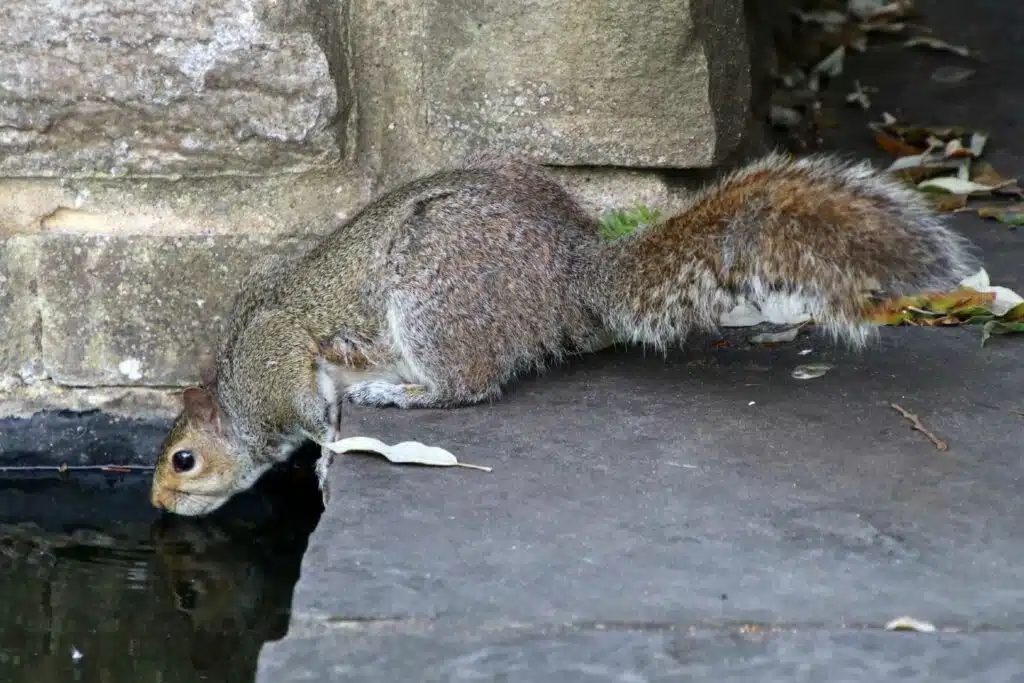LONDON PEST CONTROL AVAILABLE 24/7
LONDON PEST CONTROL AVAILABLE 24/7
The grey squirrel is recognised as being in the top worst 100 invasive pest species in the world by the International Union for Conservation of Nature. In Britain, it is classed as Invasive Alien Species (IAS) which is any animal that is not native to the UK. Because grey squirrels are an invasive pest species, it is against the law to re-release a grey squirrel if it’s been caught alive. This means that any person catching a grey squirrel alive is legally obliged to humanely dispatch it. Measures such as drowning are not permitted due to the distress this would cause the animal. So, what are the best ways to get rid of squirrels should you have an infestation.
Don’t compromise your safety and the safety of your family, pets, and wildlife when going down the DIY route. For example, investigating roof voids, examining air conditioning units, the eaves of your building, etc to examine where squirrels could live (even dying when injured), can be dangerous so consulting an expert in squirrel control should be considered.
So, what are the best ways to get rid of squirrels should you have an infestation.
In your garden squirrels can wreak havoc without being disturbed. They can:
Squirrels are very hard to deter but there are some things you can try including:

If you suspect squirrels in your roof space, then cut back any trees or branches overhanging your home and that squirrels are using to re-enter. The same applies to dense ivy which can help squirrels access the roof.
If squirrels are in the roof space, there will be several entry points that need proofing/repairing. Our technicians will often spend most of their time on-site proofing these entrance holes and gaps. A DIY approach may only last a few days before a squirrel has pulled off the repair.
For tree protection, close-fitting metal sleeves can protect them from strong rodent incisors. This should be at least 0.75m deep, and the bottom edge should be at least 1.5m from the ground. The metal should be a smooth surface to assist in preventing the squirrel from gaining a toehold.
Within your home and garden, the best proofing often lies in the cleaning and restriction of access to foodstuffs, water, and nesting materials.
The following is taken from The British Pest Control Association website.
“Traps are available online, however not every rodent trap is authorised to control squirrels. Any squirrel you caught alive would have to be killed, as per the Wildlife and Countryside Act 1981 (Spring trap approval order). Traps should never be used without adequate training.
Any squirrel that you kill would have to be done humanely and this can be very distressing. Some amateur attempts at squirrel control have resulted in squirrels being drowned which is against the law and can result in prosecution.”
You may have heard some suggestions that you could look to use poison (warfarin), but these products are not for amateur use and should only be installed by professionals who are legally authorised to use such products. These products are for use inside buildings only.
Knowing the law around what measures can be taken against pests must be adhered to, which a professional will be well aware of. For example, only specific spring traps are permitted for trapping and killing animals, as per the Spring Traps Approval Order. This is because a trap puts other species of animals at risk.
This may be used where it would be impractical or against best practice to use another control method, for example where placing rodenticide would put non-target species at risk. If live capture traps are to be used they need to be humane and legal. Not adhering to this policy is an offense under the Wild Mammals (Protection) Act 1996.
This can be the most unpleasant part of a DIY approach to handling an infestation of any pest. When surveying a building and area with squirrels it is not uncommon for our technicians to find dead squirrels in the roof spaces at varying stages of decomposition.
You must remove any squirrels as soon as you find them. Failure to do so will lead to unpleasant smells and an infestation of flies.
Please talk to your local council about permitted ways to dispose of dead squirrels as you must be aware of the legislation around this.
